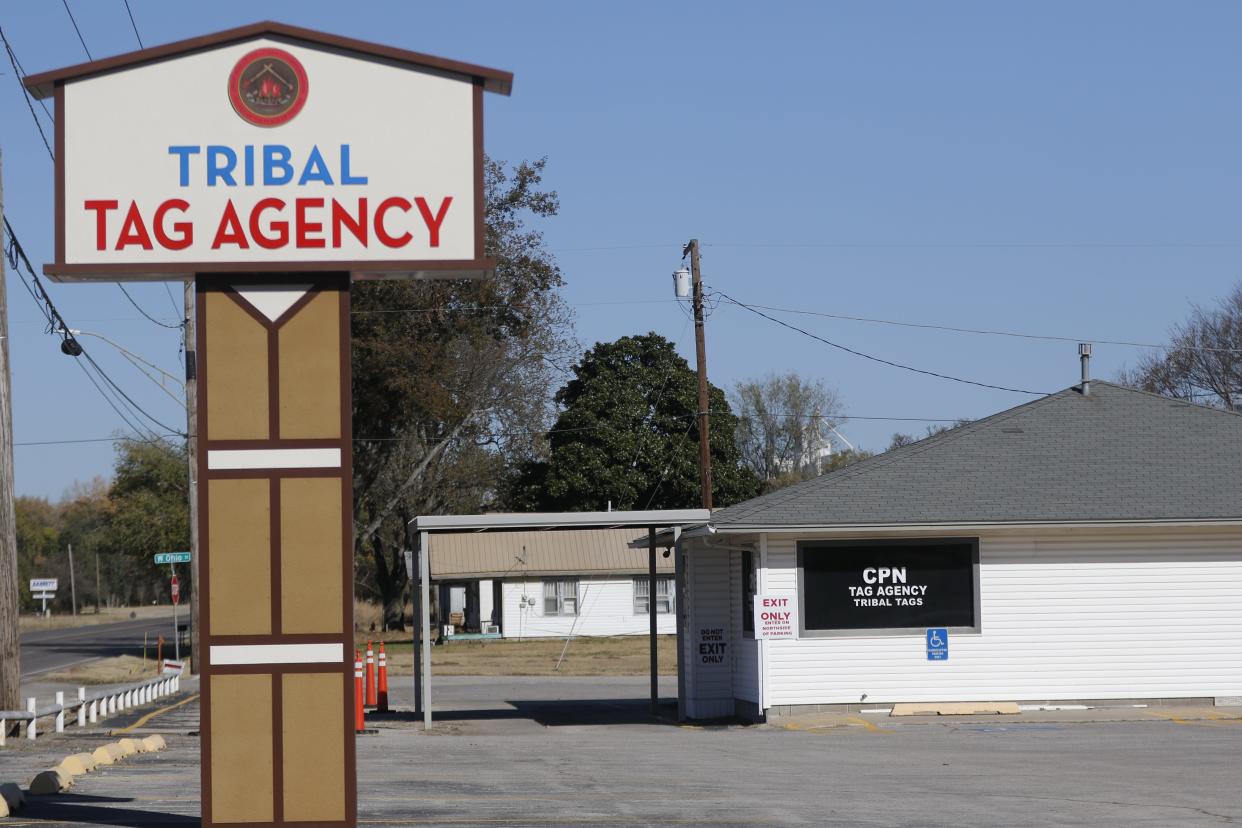Latest on Oklahoma tribal tags tickets: Some tickets dropped, but bigger questions remain

At least two traffic citations issued by the Oklahoma Highway Patrol to drivers whose cars carried tribal license plates have been quietly dropped, court records obtained by The Oklahoman show.
One of the tickets was dismissed Monday by a Garfield County judge, and the second was never filed in court. It was the latter citation, written to driver Crystal Deroin, that sent shock waves across the state after she posted a copy of her ticket on social media. She had valid plates issued by the Otoe-Missouria Tribe, but a trooper cited her because she lived outside of the northern Oklahoma tribe's jurisdiction.
Her $249 citation triggered questions statewide about how often troopers were writing similar tickets to tribal citizens with valid plates — and why troopers had suddenly started to focus on tribal jurisdiction.
Neither Deroin nor the second driver whose ticket was dropped could be reached by The Oklahoman to discuss how their cases were handled. The district attorney's office also did not return a message left for comment.
But Deroin told KOCO-TV that she plans to keep her Otoe-Missouria tag and advocate for other drivers in similar situations.
"I hope our leaders can figure this out pretty soon, because it affects not just Otoe but the 38 other tribes, as well," Deroin told the TV station. "This is not the end. This is the end of today, but we still have tomorrow, and I still have to drive home."
Tribal leaders are still seeking a solution with the state over tribal tags
John Shotton, the chairman of the Otoe-Missouria Tribe, said he and other tribal leaders are continuing to work on the issue, but did not disclose any specifics. "Until we reach a resolution, we will support our Otoe-Missouria citizens that get caught in the crossfire of this controversy,” Shotton said in a written statement.
Shotton previously said Deroin's ticket came as a shock, and leaders of many other tribes echoed his remarks. They all said the state police have long recognized tribal plates as valid regardless of where a tribal citizen lives in Oklahoma.
More: Most tribes provide vehicle and license plate data to Oklahoma, state records show
But Gov. Kevin Stitt and the Oklahoma Department of Public Safety, which he oversees, said troopers were enforcing a 1990s Supreme Court ruling and checking whether vehicles with tribal tags were “garaged” within that tribe’s jurisdiction. Stitt said troopers were simply enforcing existing law.
Attorney General Gentner Drummond took a more moderate tone, saying a compact between tribes and the state would be the best way to solve the problem.
“The Attorney General’s highest priority is public safety, and he believes the compacting process is the ideal avenue to address these concerns," Drummond's spokesman, Phil Bacharach, said in an emailed statement to The Oklahoman in November.
More: Oklahoma lawmakers told state police to work out tag agreement with tribes — 12 years ago
Tuesday, Bacharach declined to comment about the news that some of the tickets had been dismissed.
Stitt's office said it was not involved in the dismissals. "Our office had no part in the dismissal nor were we aware of the dismissal prior to today," deputy press secretary Meyer Siegfried wrote in an email.
Echoing the governor's office, a spokesman for the Oklahoma Department of Public Safety said the agency was unaware the ticket had been dismissed. "DPS did not request that this case be dismissed. And if it has been, we were not advised that it was," agency spokesman Sarah Stewart said in an email late Tuesday.
This article originally appeared on Oklahoman: Oklahoma tribal tag tickets: Some dropped, but law questions linger

